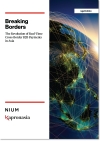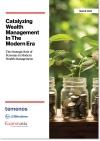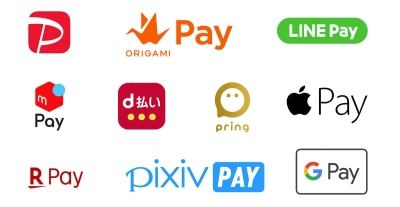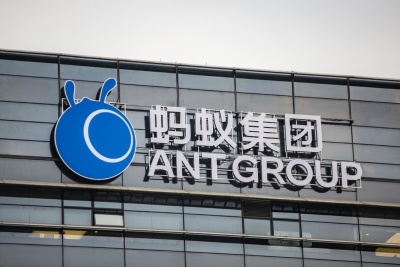Latest Insight
- Why an expected APAC fintech consolidation wave has yet to come
- Why cash is still prevalent in Asia
- Japan steps up green finance efforts
- South Korea charts middle path on crypto
- Should Grab and GoTo merge?
- Singapore pushes ahead with fintech-driven sustainability
- Digital banks in South Korea continue to thrive
- Billease is the rare profitable BNPL firm
- Fintech sector in Pakistan faces mounting challenges
- Where digital banks in Asia can make a difference
Latest Reports
-
Breaking Borders
 Despite progress in payment systems, the absence of a unified, cross-border Real-Time Payments (RTP) network means that intermediaries play a crucial role in facilitating connectivity. This report examines the ongoing complexities, challenges, and initiatives in creating a seamless payment landscape across Asia. Innovate to Elevate
Despite progress in payment systems, the absence of a unified, cross-border Real-Time Payments (RTP) network means that intermediaries play a crucial role in facilitating connectivity. This report examines the ongoing complexities, challenges, and initiatives in creating a seamless payment landscape across Asia. Innovate to Elevate In the dynamic and diverse financial landscape of the Asia-Pacific (APAC) region, banks are at a pivotal juncture, facing the twin imperatives of innovation and resilience to meet evolving consumer expectations and navigate digital disruption. Catalyzing Wealth Management In The Modern Era
In the dynamic and diverse financial landscape of the Asia-Pacific (APAC) region, banks are at a pivotal juncture, facing the twin imperatives of innovation and resilience to meet evolving consumer expectations and navigate digital disruption. Catalyzing Wealth Management In The Modern Era Hyper-personalized wealth management presents a paradigm shift from traditional models relying on static, generalized segments. Developing tailored investor personas based on psychographics, behaviours and fluid financial goals enables financial institutions to deliver rich and tailored customer experiences that resonate with next-generation priorities.
Hyper-personalized wealth management presents a paradigm shift from traditional models relying on static, generalized segments. Developing tailored investor personas based on psychographics, behaviours and fluid financial goals enables financial institutions to deliver rich and tailored customer experiences that resonate with next-generation priorities.
Events
| October 21, 2024 - October 24, 2024 Sibos Beijing |
| November 06, 2024 - November 08, 2024 Singapore Fintech Festival |
Japan’s largest bank is increasingly looking to digital finance in Southeast Asia as an avenue for growth, as its home market is mature, slow to digitally transform and constrained to some degree by an ageing population. In contrast, Southeast Asia’s largest countries still have ample low-hanging fruit, especially Indonesia, a key area of focus for MUFG.
One of our favorite ironies about digital banking in Asia Pacific is that incumbent banks have a growing role in the segment, from Hong Kong to Singapore to Taiwan to Australia. It wasn’t supposed to be this way – at least not to our knowledge. What ever happened to good old-fashioned scrappy startup-driven disruption? With that in mind, we turn our attention to two digital lenders that can technically be classified as startups, but are backed by Standard Chartered, a huge incumbent lender operating in 59 countries that earns most of its revenue in Asia.
Singapore has long been seen as the Switzerland of Asia, a pro-business, largely neutral state with a huge financial services sector catering to an international clientele. Like Switzerland, Singapore is an integral part of the surrounding region yet also has a strong independent streak and never leans too far to one geopolitical side.
Hong Kong has been busy preparing to roll out the red carpet for digital assets, but there are other emerging areas of financial services that are less volatile and trouble prone, and well, more sustainable. To that end, Hong Kong way want to focus more attention on green/sustainable finance given the reality of climate change and the significant opportunities the segment is expected to provide. Bloomberg Intelligence estimates that combined ESG assets could surge to US$53 trillion by 2025, with the Asia-Pacific region driving “the next leg of growth.”
Like its rival Alibaba, Tencent has developed a large portfolio of overseas fintech investments. Some of these are strategic bets on rising Big Tech companies with fintech arms, like Voyager Innovations in the Philippines and Sea Group in Singapore, which Tencent believes will eventually be dominant players. Other investments are more focused on facilitating access to the mainland China market for fintechs that have a niche there, such as Australia-founded but Hong Kong-headquartered Airwallex.
South Korea’s Viva Republica is defying the tech slump that has frozen funding for many fintech unicorns, both real and aspiring. In late December, it finalized a US$405 million Series G funding and it says it is now valued at 9.1 trillion won ($7 billion), up from 8.5 trillion won in June 2021, when it raised $410 million in pre-Series G funding at a $7.4 billion (8.5 trillion won) valuation.
Australia’s neobank experiment has largely gone awry, with three of the four original online lenders defunct or now part of an incumbent bank. To be sure, startups fail or get bought all the time – more often than they thrive as independent companies – but we dare say that was not the expectation of the neobanks’ founders, nor Australian regulators who sought to introduce greater competition into the financial services sector dominated by four incumbent juggernauts. The one neobank that remains from that first cohort is Judo, which has carved out a niche lending to SMEs, listed successfully on the ASX and seems poised to reach profitability before long.
Japan is a well-established laggard when it comes to cashless payments in East Asia. South Korea’s cashless payments ratio is an astonishing 94%; China’s is only a slightly less astonishing 83%; Singapore’s is 60% and Japan’s is much lower at 32.5%, according to data compiled by the Payments Japan Association and the Japan Consumer Credit Association. That said, Japan is still on target to reach its modest target of 40% cashless payments by 2025, and could gradually increase the ratio in the following years.
Better late than never? That was our first reaction to the news that at long last, Thailand has reached a decision on digital banks: It will allow them by 2025, and start accepting applications later this year. By 2024, Thailand will issue three digital banking licenses. And of course, online lenders will have to satisfy certain requirements, which we expect to be stringent and effectively eliminate any scrappy startups from even bothering to throw their hats in the ring.
Two years and 2.5 months after its IPO was shelved at the 11th hour, Ant Group appears to be nearly out of the woods. Ant has jumped through countless hoops for regulators over the past few years, from creating a dedicated consumer finance unit to raising its capitalization to agreeing to share consumer data with the People’s Bank of China (PBoC) to having Jack Ma give up control of the company – more on that later. So it is no surprise that with the Chinese economy faltering, battered by zero Covid and then the abrupt shift to living with the virus, that regulators are ready to put China’s tech crackdown in the rearview mirror.
More...
When it comes to Singapore’s digital banks, is hindsight 20/20? Probably so. The hype surrounding them never quite corresponded to reality, and in many regards accurately mirrored the broader tech bubble that pushed up the valuations of so many cash-burning startups into the stratosphere. Like their counterparts in Hong Kong, Singapore’s digital banks will need to spend a lot of time and money to effectively penetrate what is already a mature, well-served market.
Buy now, pay later (BNPL) is not new to Taiwan. Incumbent banks have offered the service for years through credit cards on certain e-commerce platforms. Instead of paying for a purchase in one go, the buyer chooses 3, 6, 9 or 12 months of interest-free installment payments. Because the banks already are authorized lenders, there is no regulatory problem. Yet in recent years, dedicated BNPL platforms have entered the Taiwan market and begun offering similar services – though they do not call them “lending” or “credit.” They will not be able to operate in this regulatory gray area much longer.
Is Europe the new New York for Chinese companies keen to raise capital overseas? Not exactly, as there is no exact replacement for the capital markets opportunities that the Nasdaq and NYSE once afforded Chinese firms. But given persistent tensions in the U.S.-China relationship, Chinese companies are opting for less liquid capital markets and less prestigious overseas listings – but without any of the geopolitical drama that has come to characterize their presence on U.S. exchanges. Switzerland’s SIX, meanwhile, is fast becoming the exchange of choice for Chinese companies wanting to raise capital outside of Greater China.
2022 was a year of mixed fortunes for China in many respects – but not in the case of its IPO market. Despite the trials and tribulations that the zero-Covid policy brought to China, listings on the Shanghai and Shenzhen stock exchanges hit a new high. Nearly 400 firms are estimated to have gone public on China’s exchanges in 2022, raising a record RMB 560 billion (US$80.4 billion), an increase of 3% over 2021, according to PwC.
In the days before China’s tech crackdown humbled the country’s largest platform companies, Ant Group seemed intent on building its own cross-border payments ecosystem in Southeast Asia. The idea, though never explicitly stated, was to build a regional payments rail that could replicate at least some of the success of Alipay’s dominant domestic system.















